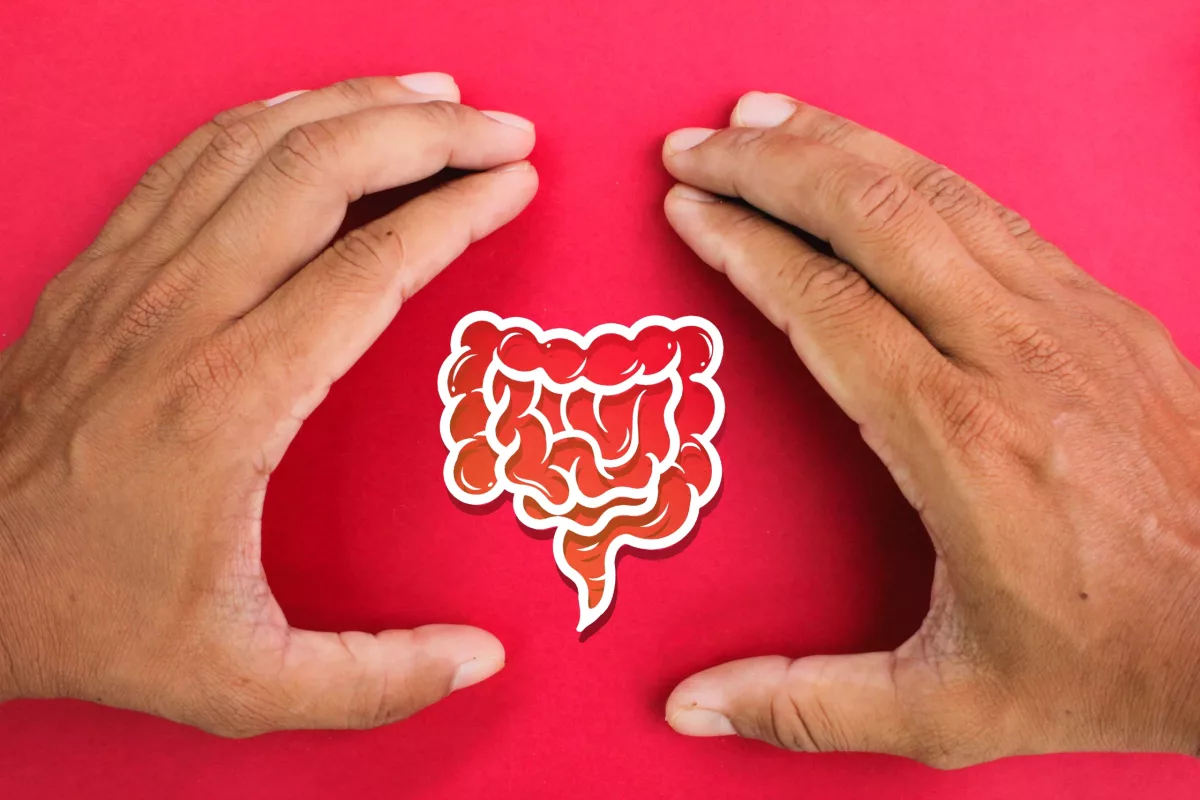A condition that causes reduced blood flow to a part of the large bowel (colon) is called ischemic colitis. Reduced blood flow to the colon leads to decreased oxygen to the intestinal cells, which results in damage and swelling of the bowel tissues. Moreover, decreased blood flow may also cause narrowing of the blood vessels, hypotension, and other problems. In some cases, this condition is called colonic ischemia.
Ischemic colitis may affect any part of the intestine, and the most common symptom is pain in the left side of the abdominal (belly) region.
In some cases, it is challenging to diagnose this condition because it is frequently confused with other digestive problems. While in most cases the colon heals itself, some people may need medicines to treat the disease and prevent infections. In severe cases, people need surgery to treat the damaged part of the colon.
Symptoms
Those who suffer from ischemic colitis usually experience the following symptoms. For example:
- Abdominal tenderness, cramps, or pain that often happens suddenly
- Maroon or bright red blood in the stool
- Sudden urge to move the bowels
- Diarrhea
- Nausea
The risk of serious complications increases significantly if the symptoms occur in the right part of the abdomen. It happens less commonly compared to the symptoms on the left side of the belly. Usually, people with right-sided colitis are more likely to have underlying conditions (including hypertension, atrial fibrillation, kidney disease, and others).
If you experience sudden, severe abdominal pain, seek medical help right away. One way to prevent dangerous complications of this condition is early diagnosis and treatment. For instance, if you experience symptoms such as bloody diarrhea, do not hesitate to visit a doctor.
Causes
Unfortunately, it is not possible every time to determine the exact cause of ischemic colitis. However, the following factors may contribute to it. For example:
- Hypotension (also called low blood pressure) is often associated with dehydration, heart failure, surgery, trauma, or shock
- Atherosclerosis (the buildup of fatty deposits on the artery walls occurs)
- Bowel obstruction due to a hernia, scar tissue, or tumor
- Surgery that involves blood vessels, heart, digestive, or gynecological structures
- Health conditions that negatively affect the blood (including lupus, sickle cell anemia, vasculitis, and others)
- Illegal drugs (such as cocaine, methamphetamine, and others)
- Colon cancer
In rare cases, the use of certain medications may also lead to ischemic colitis. Check below some examples:
- Heart and migraine medications
- Hormone medicines (such as birth control pills, Estrogen, and others)
- Antibiotics
- Pseudoephedrine
- Opioids
- Irritable bowel syndrome medications
- Chemotherapy drugs
Risk Factors
The following factors may increase your risk of developing ischemic colitis. Examples include:
- Age – While it may occur at any age, it is mostly diagnosed in people over 60 years old. If ischemic colitis happens in younger adults, it may indicate blood-clotting problems, vasculitis (inflammation of the blood vessels), or another condition.
- Sex – This condition happens more frequently in females than males.
- Clotting issues – Diseases that negatively affect the way the blood clots (such as factor V Leiden or sickle cell disease) increase the risk of developing ischemic colitis.
- High cholesterol (this condition may cause atherosclerosis and lead to ischemic colitis)
- Decreased blood flow – There are some conditions that may decrease blood flow. These include hypotension, shock, heart failure, diabetes, rheumatoid arthritis, and others.
- Previous surgeries – After surgery, scar tissue may form and cause decreased blood flow.
- Heavy exercise – One of them is marathon running.
- Surgery that involves the digestive system, heart, and other organs.
What Are The Potential Complications of Ischemic Colitis?
While in mild cases, the condition gets better within 2-3 days, in severe cases, people may experience some complications, especially without treatment. Examples include:
- Tissue death (also known as gangrene)
- Perforation (hole formation)
- Bowel obstruction (also known as ischemic stricture)
How to Prevent Ischemic Colitis?
However, there are no sure ways to prevent the condition because experts do not fully understand why it happens. Most people with this condition recover fast and usually do not have other episodes.
There are some ways to prevent recurrent ischemic colitis. Check below some tips that are often recommended by doctors:
- Reduce the dose or change the medicine that causes it
- Stay hydrated, especially during heavy training
- Manage your existing health problems
Diagnosis
Frequently, ischemic colitis is confused with inflammatory bowel disease (IBD) because it causes similar symptoms. However, physicians commonly perform the following tests to confirm ischemic colitis and rule out another disease that causes similar symptoms. For example:
- Abdominal CT scans – This is an imaging test used to get detailed images of the colon. It helps to diagnose other disorders (such as IBD).
- Colonoscopy – This test is used to check for cancer and other colon conditions. During this procedure, doctors may take a small sample of the affected tissue and test it in the laboratory (biopsy).
- Stool analysis – This test helps exclude infections as a cause of the symptoms.
Treatment
The treatment options for people with ischemic colitis are usually different among people because they depend on several factors. For example, the severity of the condition, overall health, your age, preferences, and others. In mild cases, the symptoms disappear within 2-3 days. Check below some treatments that are usually prescribed by doctors for people with this condition:
- Intravenous fluids to keep you hydrated
- Antibiotics to treat bacterial infections
- Treatment for underlying conditions (such as arrhythmia, congestive heart failure, and others)
- Changing the dose or medicine that causes narrowing of the blood vessels. These include medications used to treat migraine, hormonal imbalances, and heart diseases.
- Nutrients and a feeding tube (sometimes)
Surgery
In severe cases, people need surgery to lessen the symptoms. During this procedure, surgeons usually remove dead tissue, repair the hole in the colon, and remove the scarred tissue. Commonly, people with underlying conditions such as kidney failure, atrial fibrillation, or heart disease need surgery.
Frequently Asked Questions
What should you eat if you have ischemic colitis?
Usually, doctors recommend a low-fiber and low-fat diet and drinking plenty of water to prevent dehydration. You should also avoid irritants, including spicy foods, alcohol, coffee, and foods high in saturated or trans fat.
What is the life expectancy of someone with ischemic colitis?
Usually, the prognosis of the disease varies among people. While most people recover completely, others may develop serious complications. The life expectancy decreases significantly in people with gangrene or other life-threatening complications.
What are the long-term effects of ischemic colitis?
People with more severe ischemic colitis may experience some complications, especially without treatment. These include:
- Bowel obstruction (also called ischemic stricture)
- A hole in the large intestine
- Persistent bleeding
- Gangrene (tissue death)
- Sepsis
- Peritonitis
- Chronic ischemic colitis
This document does not contain all possible complications of ischemic colitis. Ask your healthcare professional if you have additional questions.




